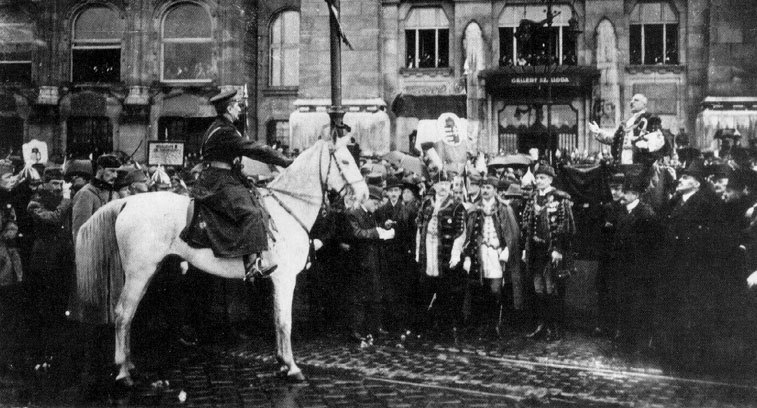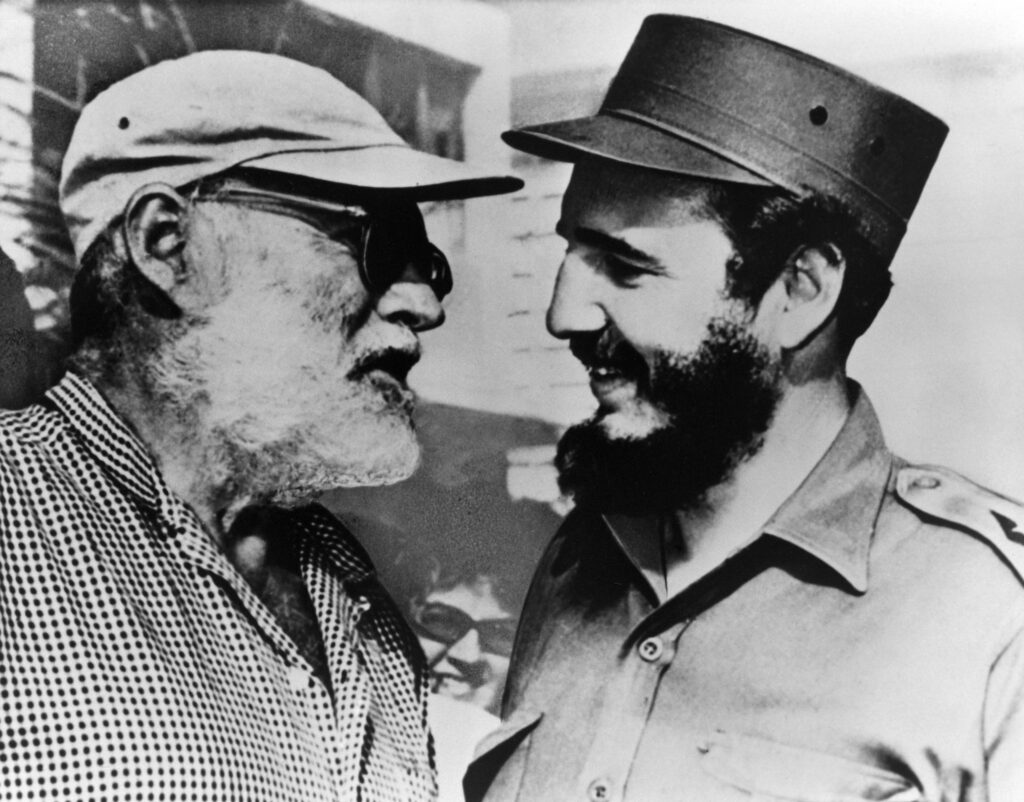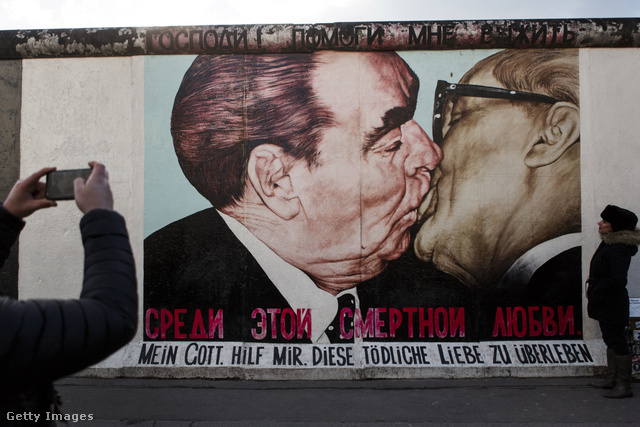The historian Zsuzsanna Borvendég's series was originally published on the PestiSrácok website, but there are certainly those who missed it. But those who haven't read all the parts should also read it again. Knowing the whole picture, can we understand how we got here?
I consider the Bolshevik coup of 1917 to be one of the most shocking traumas in world history, among other things, because it spread such a devastating epidemic on Earth, the antidote for which is still unknown a hundred years later. The disease is ravaging, it is spreading in new waves around the world, and there is no vaccine to stop it. We Hungarians were among the first to be vaccinated against the plague in 1919, but our immunity is still impeccable.
Immune response
The 133 days of the commune were a lesson for us, which temporarily created a national minimum, which rarely occurs in the history of our country: between the two world wars, there were few people who mourned the months of the Red Terror, or thought that they could discover the realization of social justice in the actions of the people's commissars. Those who thought this way mostly went out into the world, attacked the order in the bonds of the communist networks and the Soviet secret services where they were ordered.
Horthy pushed out the Bolsheviks as much as possible
Bolshevik ideas were forced into illegality in our country. Miklós Horthy and the Hungarian government also tried to resist the pressure that the mutilated and resource-deprived Hungary of Trianon would become economically dependent on the Soviet Union.
All of this was no small task, since it was difficult to obtain raw materials from the successor states - for example, oil only came from the Grozny fields for years - and the domestic tycoons also lobbied strongly to participate as investors in the construction of the emerging empire. The isolation forced the Hungarian government to negotiate, but they carefully ensured that subversive forces did not gain ground in the country under the vortex of economic cooperation.
Vienna and Berlin fell already in the early twenties, and a similar fate awaited London and Paris. The political and ideological warfare hidden under the guise of commercial activity was directed from the big cities of Western Europe: for example, the Soviet trade branch in Berlin, which was the financial center of the Comintern, had around eight hundred people working there - obviously they were not ordinary businessmen.
The Soviets wanted to build a base in Budapest as well, but the adamant Hungarian government managed to maximize the number of employees of the trade branch at 8-12 within the framework of a separate agreement. The caution was not unfounded: the Horthys already then recognized the trap into which the West marched of its own accord, and of which we became its prisoners after 1945.

image source: Wikipedia
For a long time we enviously peered through the Iron Curtain, but in the last thirty years the tide turned: it turned out that the West was slowly but steadily heading towards the dead end into which we were pushed without question and from which we tried to escape for many decades - Bolshevism was intolerant and into his radical dungeon.
Carefully planned, conscious brainwashing began in the West at the turn of the twenties and thirties , the techniques of which still have a familiar effect today.
Innocent independence - a battle for the soul
While a well-organized left-wing network was working on the economic strengthening of the Soviet Union, the battle for souls also began: the Bolshevik idea represented by the Lenins broke into a monopoly, and its adherents were preparing for a world revolution. For this, it was absolutely necessary to infect the spirit, to eradicate the human immune system. And what is it that most effectively destroys the mind and through it the belief in traditional values? Culture, of course. A German media mogul, Willi Münzenberg, came up with the idea that intellectuals should be put behind the "idea". He wanted to rely on humanist thinkers whose innocence had not yet been affected by radicalism.
In English: he was looking for well-intentioned friends - preferably well-known writers and philosophers - who could be awakened to a messianic commitment with a few sonorous words. The focus was on faith. These fellow travelers, whom Lenin called only useful idiots, had to believe in the "new religion" and serve the idea with complete conviction. Why? This is because it was possible to maintain the appearance of independence: the articles written with fanatical convictions were indeed written independently, not by order. Legitimate writings by "independent" journalists and other intellectuals appeared in legitimate journals. It was only necessary to launch a "fashionable opinion" or a "fashionable topic" at the right place and at the right time, and this, passing through the pen of the "enlightened believers", spontaneously developed into a mainstream position, which soon became a cornerstone of political and public life.
Much to the satisfaction of the Bolshevik network. Louis Gibarti , alias László Dobos , the leading figure of the Comintern network born in Hungary, called this self-stimulating process rabbit breeding, during which the enthusiasm of the "enlightened" intelligentsia practically recruited more and more innocents.
The ritual of goodness - and the Evil behind it
These fellow passengers, mostly blessed with real talent, sincerely believed for a long time that Stalinism was an indispensable part of an enlightened life, while the communist agents - with a cynical smile in the corners of their mouths - used the "club of the innocent" for their darkest games. Stephen Koch, in his great book, called the ritual of goodness the diabolical technique of putting goodness and humanism at the service of Evil.

Hemingway and Fidel Castro (photo: MTI/CP)
At first, Stalinism was on the stage, when it was exposed, the fight against fascism remained, then came the fight against racial oppression, the glorification of sexual deviance and the making of increasingly extreme beliefs fashionable, of course always wrapped in some kind of lofty, messianic packaging. From Lenin's useful idiots, they created the intellectual milieu that suppressed all dissent under the mask of "political innocence". "Rabbit breeding" worked: artificially created fashion turned into mass hysteria.
They can't show anything new
Münzenberg had already developed the tricks of using the innocent masses: he organized protest marches for every trivial but easily communicable matter; he amplified the voice of politically engaged intellectuals with congresses; they organized festivals and exhibitions of faithful artists, believing that only this was "advanced" and "modern", i.e. trendy art - everything else was left behind. The signatures of crazy celebrities were collected with gusto on various open letters and petitions, where the emphasis was on the long queue of well-known names, not on the content of the draft. Familiar techniques?
Münzenberg's life partner formulated the ten commandments of fellow travelers in the 1930s as follows:
You do not approve of Stalin's policies; you don't call yourself a communist; you don't say you like the system; you don't call on people to support the soviets. Never. Under no circumstances. You say you are an independent idealist. You don't really understand politics, but you think the little guy should get a dirty little chance too. You believe in openness. I am shocked and horrified by what is happening in our country. I am horrified by racial persecution and the oppression of working people. You think the Russians have embarked on a big experiment, and you hope they will succeed. You believe in peace. You admire understanding between nations. You hate fascism. You think the capitalist system has deteriorated. You say this over and over and over. But nothing more than that.
A tip: let's try to replace the key concepts of the quote above with, say, the predicates of gender idiocy. Has anything changed in the brainwashing techniques of the last hundred years? Maybe it's just that Bloomsbury et al were right. The Soviet Union's most famous agents, the Cambridge spies, staged infamous homosexual orgies and believed that they belonged to a superior erotic elite who had transcended the "cruelties" of normalcy and entered the world of finer sensations. However, the barbaric majority of their time did not yet understand this advanced way of life, and believed that their time would come in about a hundred years. And really.
Closed system
A hundred years have passed since the "ritual of kindness" began, but the essence has not changed. Radicalism has settled on any topic suitable for mobilizing the masses, which appeals to the good in the human soul. They turned nature conservation into climate hysteria, tolerance into stigma, openness into exclusion - and I could go on and on.
Remaining an outsider or expressing a dissenting opinion risks witch-hunting. Argument based on rational or even scientific facts is useless, since the Bolsheviks created a fanatical religion out of political ideology, where only faith and emotions matter. Koestler called the intellectual prison where the communists locked their own thoughts a closed system. There's no escape from here, and there never really was for Koestler.
The kaloda is unchanged, but the Bolshevik religion has now taken on a new guise: it calls itself libertarian, liberal. And what can those who sincerely believe in the bigotry of today, who enter the "club of the innocent" expect? Bertold Brecht , the playwright who commented on the horror during Stalin's purges: "The more innocent they are, the more they deserve to be shot in the head." This is how the prisoners of the closed system think, no matter how many waves they attack.
Source: PestiSrácok
Author: Borvendég Zsuzsanna
(Cover photo: Brezhnev and Honecker. Photo: Carsten Koall / Getty Images )













